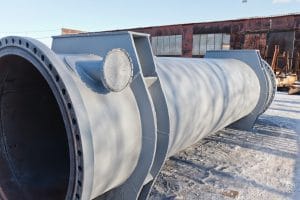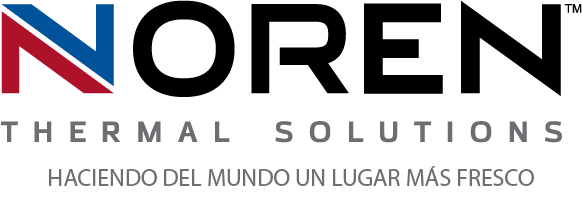 Heat exchangers have long been a vital component to most companies’ technological apparatus, most importantly as part of their electrical thermal management systems. When they first entered the sphere of manufacturing technology, for instance, most manufacturing companies quickly took advantage by changing out their older, more cumbersome air conditioners. Before long, companies in virtually every industry began enjoying the same streamlined, highly efficient thermal management that heat exchangers provided. Now, the same innovative heat transfer concepts are used for much more than just cooling electrical equipment.
Heat exchangers have long been a vital component to most companies’ technological apparatus, most importantly as part of their electrical thermal management systems. When they first entered the sphere of manufacturing technology, for instance, most manufacturing companies quickly took advantage by changing out their older, more cumbersome air conditioners. Before long, companies in virtually every industry began enjoying the same streamlined, highly efficient thermal management that heat exchangers provided. Now, the same innovative heat transfer concepts are used for much more than just cooling electrical equipment.
Faster, more efficient wastewater treatment
Improved electrical thermal management is only one of the many changes that industries have undergone over the last few decades. Another is the implementation of wastewater treatment facilities to help companies lower their overall environmental impacts. Treating wastewater is vital before it’s released back into nature or repurposed for other processes. The treatment removes any toxins, harmful chemicals, and biologically harmful substances from the water, ensuring that it’s safe for whatever purpose it serves next. To succeed, the process requires the sustained application of heat to the water, which traditionally required investing in another energy source (such as natural gas). In many cases, however, using heat exchangers to repurpose electrical waste heat can help reduce or completely eliminate that reliance.
High-performance and quality machine tool cooling
Machine tool cooling in the molding industry is another vital thermal management application that has benefited from the adaptation of heat exchanger technology. Specialized heat exchangers known as thermal pins can be fitted to most common types of injection or extrusion molding equipment. The thermal pins rapidly and uniformly remove heat from each mold, using advanced heat transfer concepts to improve their reliability and efficiency. Thermal pins combine the energy and cost-efficient advantages of heat exchangers with the isothermal properties required to consistently produce accurate, high-quality molds.
Transferring heat for green energy purposes
As heat transfer capabilities became increasingly more popular, so, too, did most industries’ efforts toward implementing green energy initiatives. One of the challenges to many such efforts was finding a way to efficiently transfer heat and energy in a manner that adhered to the application’s green energy principles. Heat exchangers, which use natural concepts like phase-change cooling and natural/forced convection, helped solved this problem for many applications, making it easier to produce and utilize green energy techniques.
For more information about the many different ways companies benefit from heat exchangers, call Noren Thermal Solutions in Taylor, TX, at 866-936-6736.







